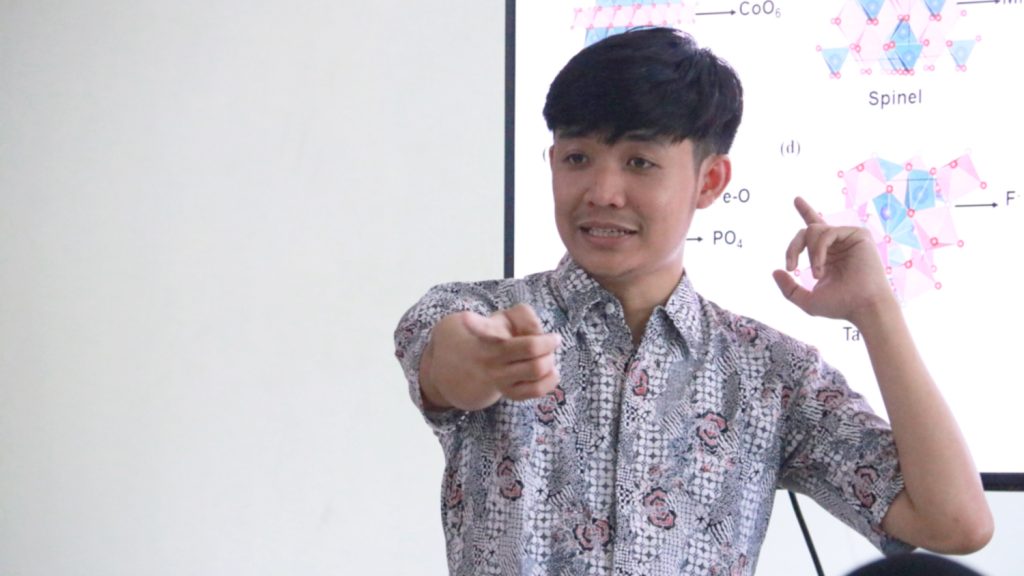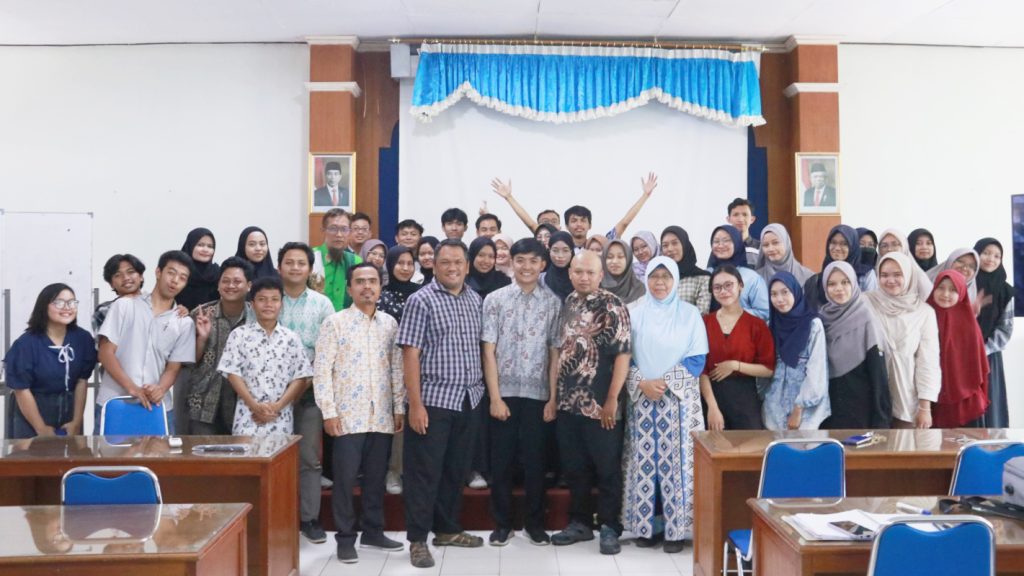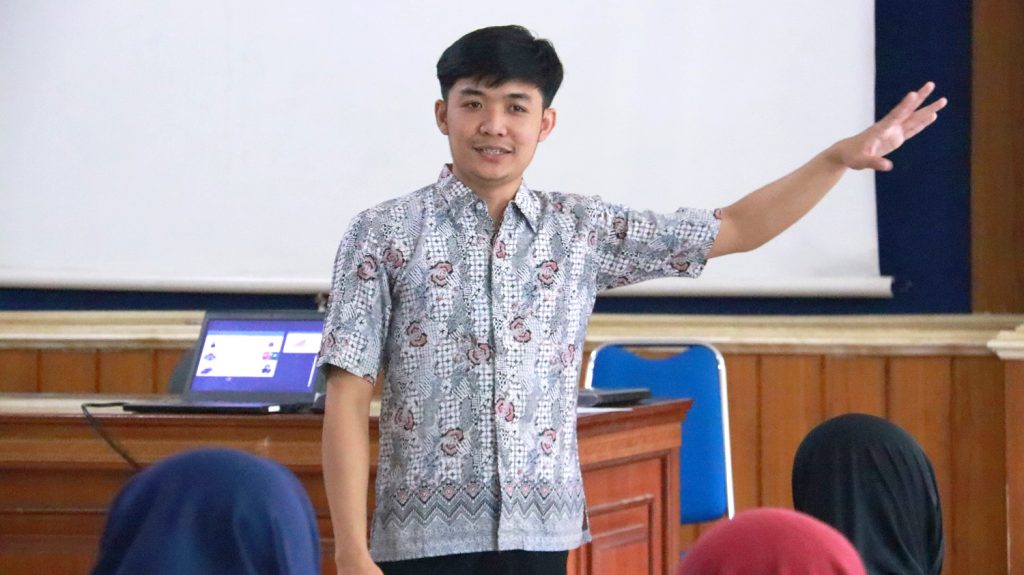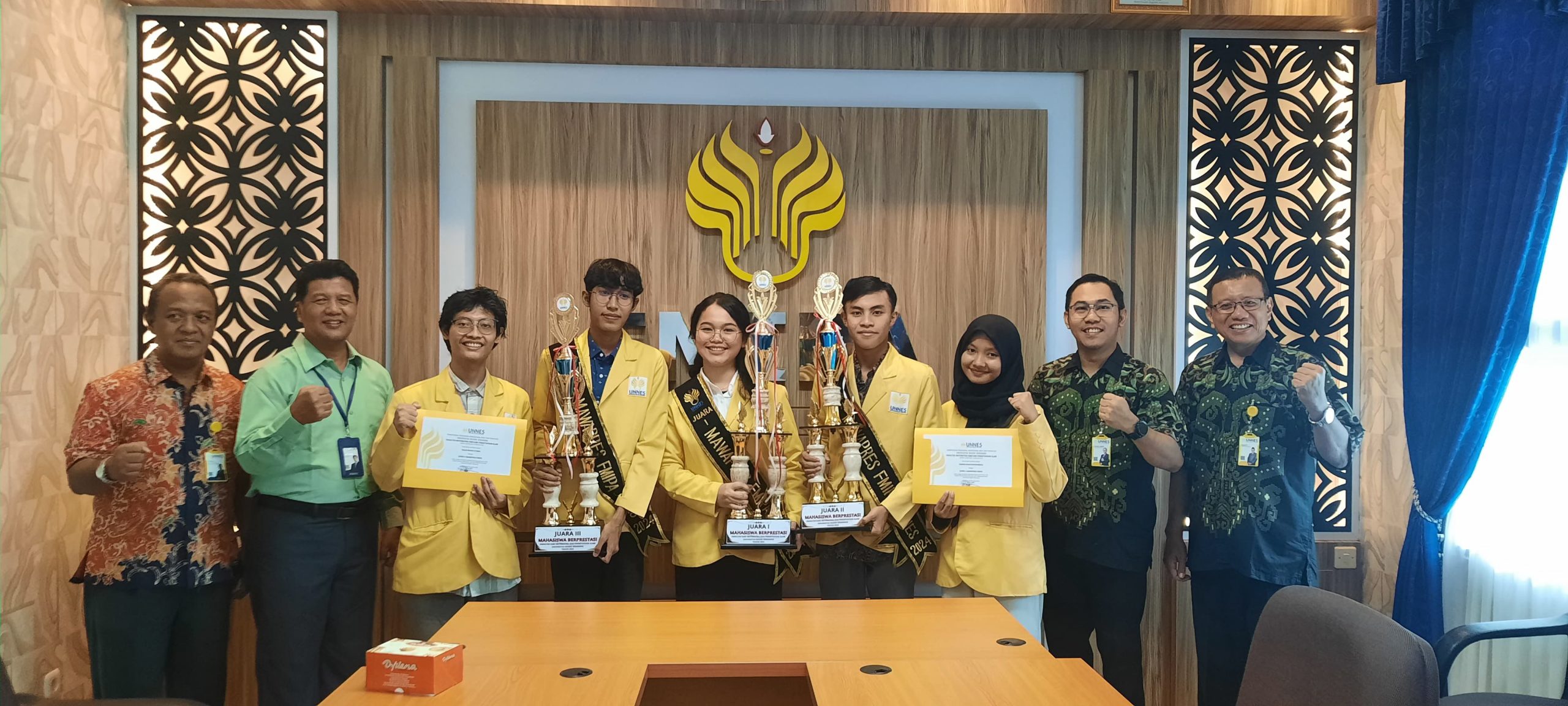Semarang, October 5, 2023 – Today, the Physics Study Program at Universitas Negeri Semarang (UNNES) organized a special guest lecture discussing the rapidly evolving research directions in the field of energy and battery technology. This guest lecture featured Dr. Jotti Karunawan, an alumnus of the Physics Education program at UNNES who is now a researcher at the Research Center of Nano Science and Nano Technology at Bandung Institute of Technology (ITB). The lecture was attended by 39 students and 5 lecturers from the Physics and Chemistry Study Programs at UNNES. Held in Building D7, 3rd floor, the guest lecture lasted for approximately 2 hours. The event was opened by the Coordinator of the Physics Study Program, Prof. Dr. Masturi, M.Si., and moderated by Dr.rer.nat. Listyanto, M.Si.
In the guest lecture titled “Research Direction of Li-Ion Battery Toward High Energy Density Battery,” Dr. Jotti Karunawan provided profound insights into the latest advancements in lithium-ion (Li-Ion) battery technology. Li-Ion batteries have become a key component in various applications, ranging from portable electronic devices to electric vehicles. The lecture not only delved into the latest innovations in battery technology but also emphasized the importance of recycling battery waste.

During his lecture, Dr. Jotti Karunawan explained the significance of increasing the energy stored by Li-Ion batteries. In recent years, the demand for batteries with higher energy density has grown rapidly, particularly with the growth of the electric vehicle industry and renewable energy storage. Dr. Jotti Karunawan also discussed several approaches being developed to enhance the energy stored by Li-Ion batteries. He stressed that while aiming for high-energy-density batteries, researchers must also consider their environmental and social impacts, including the global issue of battery waste. In this context, Dr. Jotti Karunawan emphasized the need for more comprehensive research, including solutions for recycling battery waste. Through the use of technology and innovation in battery design, he explained how we can create more efficient and environmentally friendly batteries. This will help reduce the negative impact of battery waste on the environment and human health.
Furthermore, Dr. Jotti Karunawan also talked about the challenges in the development of future anodes and cathodes. Research on cathode development includes Ni-rich cathodes, Li-rich cathodes, and LNMO spinel cathodes, among others. Meanwhile, challenges in anode research for the future include Li Metal, Si Anode, Graphene Anode, and Anodeless or anode-free battery.

The participants of the guest lecture were highly enthusiastic and posed relevant questions related to the topic. Prof. Dr. Masturi, M.Si., the Coordinator of the Physics Study Program at UNNES, expressed deep appreciation for Dr. Jotti Karunawan’s valuable knowledge sharing in the field of battery technology. He hoped that this guest lecture would mark a good beginning and broaden students’ insights into future battery technologies.





